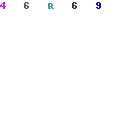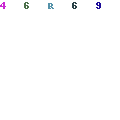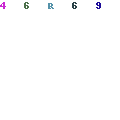Braveheart speaks to students at SIUE
What would it be like to maintain your culture as it is being wiped out? The Anthropology Department hosted a speaker to help students understand an answer to that question.
 Lynn Thunder Horse Braveheart was the featured speaker for a group of students at SIUE on Thursday, November 11, 2010. Braveheart was asked to speak as part of Native American Heritage month and the launch of a new minor is Native American Studies.
Lynn Thunder Horse Braveheart was the featured speaker for a group of students at SIUE on Thursday, November 11, 2010. Braveheart was asked to speak as part of Native American Heritage month and the launch of a new minor is Native American Studies.
Braveheart is an enrolled member of the Oglala Lakota Nation. She now lives in Minneapolis, Minn, where she is involved with community organizing and environmental issues.
Braveheart spoke on a personal topic: ‘Survivance manifested: A contemporary indigenous woman claims her space, place and voice.’ The basis of her talk was the life that she lived through as a young person, which is all too common for Native American children.
“I am going to tell you a story about how I have survived, how I was the only one in my family to come back — and my brother too — me and him were the only ones to pick up our culture again,” Braveheart began.
Braveheart was born in Kansas City, Missouri. She said her mother, who became an orphan at 4 years old, was taken by a Catholic priest and adopted by a white family. The Native American culture and religion were strictly forbidden to be practiced.

Annalyssa Gypsy Murphy (left) and Lynn Thunder Horse Braveheart (right) show one of Braveheart's mother's traditional dance costumes.
“Our religion was banned — it was outlawed on the reservation. My mom remembers being a little girl and her mom carrying her out into the woods in the middle of the night and having to do it under the cover of darkness,” said Braveheart. “Everything about being native was crushed. She went like this for the rest of her — up until now.”
As a result of her mothers’ childhood, Braveheart’s mother was not capable of taken care of her properly. The only way she could cope was by drinking. Braveheart grew up in an unhealthy environment.
“I grew up around addicts and alcoholics my whole life, thinking that it was normal — and severe abuse, my mom abused the crap out of us and my dad beat the crap out of us,” said Braveheart.
At school, Braveheart attempted to blend in with white students. Because of her mixed background, Braveheart was able to pass as a dark skinned white child. She wanted to keep it this way.
“I never wanted my mom to come to school with me because once the white kids at school saw my mom, they would know I was Indian,” said Braveheart. “It was easier to be white and it was easier to pretend to be white.”
Braveheart ran away from that environment and spent many of her teens years on the streets. She became an alcoholic to cope with her past.
“I learned the coping skill of drinking — too much,” stated Braveheart.
Braveheart, like many other Native American children, did not graduate from high school.
“89 percent of Native American children in Minnesota will not graduate from high school,” stated Annalyssa Gypsy Murphy, visiting scholar and assistant professor.
Braveheart believes that the pain caused by the way that Native Americans have been treated are part of the root cause of her life difficulties.
“I have a theory that Indian peoples have a hard time learning their language because there is so much shame and pain attached to not knowing it,” said Braveheart. “There is an emotional barrier to my identity that hurts so much to know that — what genocide, what assimilation did to my people is attached to my genes. It’s attached to who I am.”
Despite all of the challenges faced by Native Americans, Braveheart was able to turn her life around. It began when she was rescued by her mother.
“She [Braveheart’s mother] ended up going into treatment when I was 16 and she found me when I was in the hospital. I had nearly killed myself at this point,” said Braveheart. “When you look at her life and what she’s been through, her coming to save me that day was one of the best gifts I’ve ever had in my life.”
Braveheart went into a shelter where she found out who she was, now. Before that point, Braveheart described herself as a shell of a human being, without even knowing how to feel. She said the way she felt was to drink and do drugs at a young age. As she began to rediscover her heritage, she began to learn how feel again.
“The first time I ever felt anything in my heart was when I sat in the sweat lodge and heard these warriors — these men — singing. And your sitting in the pitch dark,” said Braveheart. “You are trapped, then, inside yourself. You are confronted with just yourself.”
Braveheart explained how the sweat lodge allowed her to open up to her emotions. She also explained how the Native American medicine wheel represents all of humanity, connecting oneself to the world.
Around 18, Braveheart began to discover that art and writing would allow her to cope with her past.
“That was the point in my life when I started to see art as an activist tool — and writing,” stated Braveheart. “It was really powerful for me — using art as a weapon and art as a coping skill.”
Since her recovery, Braveheart has been involved with community organizing, an artist, a writer as well as other activities.
“I do environmental work advocacy in the city in the Indian community. I teach people how to recycle. I teach people how to detoxify their homes — especially the native people,” said Braveheart. “I think native people should really take the lead on environmental issues.”
Filed Under: Anthropology













